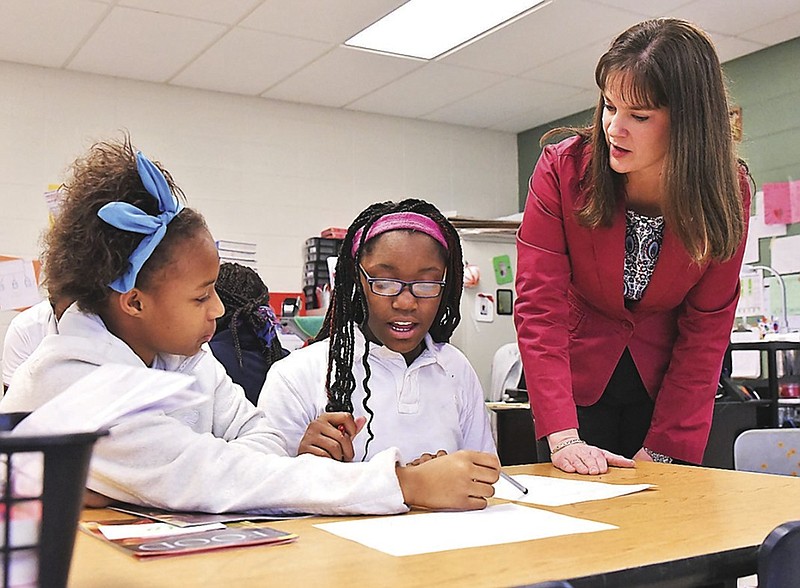You can't learn if you're not in school. The first thing we had to do is learn how to keep the kids in school."
When teachers apply to work at Dalewood Middle School, Principal Chris Earl makes sure to ask a couple of key questions.
"Do you like kids?" he asks. "Do you like being around kids?"
Hiring a bunch of new teachers who like kids, Earl said, is one reason why the suspension rate at Dalewood, a Chattanooga school with mostly low-income, black students, has dropped steadily. It was 768 in 2012 when Earl took over as principal and 122 so far this year.
"You can't learn if you're not in school. The first thing we had to do is learn how to keep the kids in school," Earl said Friday, as he gave a presentation to new Tennessee Education Commissioner Candice McQueen, who visited Dalewood, Woodmore Elementary School and Brainerd High School.
The three schools are "priority schools," which means students' standardized test scores were in the bottom 5 percent statewide. They, along with Orchard Knob Elementary and Orchard Knob Middle, were awarded $10 million in federal funds from the state to create an "iZone" meant to boost scores through changes such as longer school days, performance bonuses for teachers and purchases of computers and other technology.
During a roundtable discussion at Dalewood, McQueen asked a group of about 30 teachers three questions: What's working? What's not? And do you feel supported?
"You don't have to sugarcoat them," McQueen said, encouraging honest responses.
Hamilton County Department of Education officials told McQueen that the iZone funding has made a difference. Every teacher at Dalewood has an iPad tablet computer, Wi-Fi access and an interactive white board in class, Earl said, to help them do their jobs.
Earl said the student "success rate" on standardized tests at Dalewood has climbed steadily from 11.8 percent to 22.1 percent in 2014. Charts showing the school's overall improvement were displayed in the hallways, and every student's performance is tracked individually by multicolored dots on a "student progress tracker board" in a room open only to teachers.
State Sen. Todd Gardenhire, R-Chattanooga, accompanied McQueen on her tour. She has a goal of meeting 10,000 of the state's roughly 80,000 teachers through school visits.
Gardenhire asked her about what he later described as a Catch-22 of funding given to priority schools: Once a priority school lifts itself out of the bottom 5 percent, the extra funding that helped make improvements goes away.
"It's kind of backwards," Gardenhire said in the school's hallway in between visits to classrooms. "No one ever says it, but is that an incentive to not get over that threshold?"
McQueen told Gardenhire that the Tennessee Department of Education was considering "best practices" to make the gains sustainable.
During Earl's presentation, Gardenhire told the group of educators he was immediately struck by what a good listener McQueen was when they first met in Nashville.
"She listens," Gardenhire said. "Otherwise, I wouldn't have invited [her] to come out here."
Contact staff writer Tim Omarzu at tomarzu@timesfreepress.com or www.facebook.com/tim.omarzu or twitter.com/TimOmarzu or 423-757-6651.
